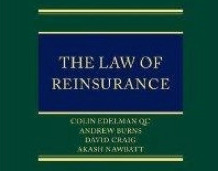Excess Insurance Policies and Reinsurance Treaties
 The insurance coverage litigators of Mark Anchor Albert and Associates can help you to achieve an optimal outcome with respect to excess insurance policy claims and reinsurance treaty disputes.
The insurance coverage litigators of Mark Anchor Albert and Associates can help you to achieve an optimal outcome with respect to excess insurance policy claims and reinsurance treaty disputes.
A reinsurer is an insurance company’s insurer. The reinsured insurer, called a “ceding” company, transfers—i.e., “cedes”—to the reinsurer a portion of the risk the ceding company has under one or more insurance contracts with respect to specified risk exposures in exchange for a portion of the ceding company’s premiums generated on the primary insurance contracts it has reinsured. Reinsurance protects the ceding company from unusual or extraordinary losses and stabilizes underwriting results, lending further solidity to the financial guaranty market. Reinsurance reduces the capitalization requirements of the ceding insurance company with respect to its exposure to risk on the proportion of the primary insurance it has ceded to the reinsurer. This can help the primary insurance company’s credit rating with the primary credit rating agencies, Moody’s Investor Service, Standard & Poors, and Fitch.
Reinsurance contracts come in two basic forms: facultative reinsurance and treaty reinsurance, although there are hybrid reinsurance products combining elements of facultative and treaty reinsurance to suit particularized risk exposures. Facultative reinsurance provides reinsurance for a single primary insurance contract and is subject to individual negotiation regarding the terms and conditions of the reinsurance obligation. Facultative reinsurance arrangements typically arise in cases of large individual insurance exposures (say, under an old, high-limits policy that covered asbestos exposure) that was not covered by a treaty reinsurance arrangement.
Treaty reinsurance, on the other hand, provides broader, blanket reinsurance coverage for multiple insurance contracts comprising part of a ceding company’s book of business or part or all of one or more business segments, say, airplane or watercraft liability.
Automatic facultative agreements are hybrids of facultative and treaty reinsurance that are negotiated with respect to particular types or lines of business that involve repeating categories of risk that the ceding company wishes to reinsure on an ongoing basis as it generates new business and premiums.
Facultative and treaty reinsurance agreements are typically structured either as “proportional” or “non-proportional” depending on the types and proportions of insurance business the ceding company maintains. Proportional reinsurance arrangements allocate risk proportionally between the ceding insurance company and the reinsurer. When a so-called “quota share” arrangement is negotiated, the reinsurer and ceding company share premium generate and policy losses on a pre-agreed fixed percentage basis that may be based on a formula or individually-negotiated criteria and conditions.
Excess of loss agreements are non-proportional, and provide that the ceding insurer is liable for a predetermined dollar amount of any loss covered by the reinsured insurance contracts. Losses above the pre-determined amount are required to be paid by the reinsurer up to the limit of the excess of loss agreement.
For the ceding insurer, reinsurance constitutes in effect a vertical redistribution of risk. The reinsurer, for its part, also may cede part of its reinsurance liability exposure to yet another insurance company, called the “retrocessionaire.” The ceding reinsuer is called the “retrocedant.”
Unlike typical first party or third party liability insurance contracts, reinsurance contracts—whether facultative or treaty agreements, or hybrid versions—require the payment of reinsurance proceeds to the ceding insurer only after the ceding company has paid for a loss covered by the underlying reinsured policy. Reinsurance litigation typically arises from a reinsurer’s request for a declaratory judgment of non-coverage or coverage limitations, or a reinsured’s action for declaratory relief or breach of contract due to the reinsurer’s refusal to indemnify the ceding company after a loss has been paid.
 Los Angeles Insurance Lawyers Mark Anchor Albert and Associates Home
Los Angeles Insurance Lawyers Mark Anchor Albert and Associates Home


